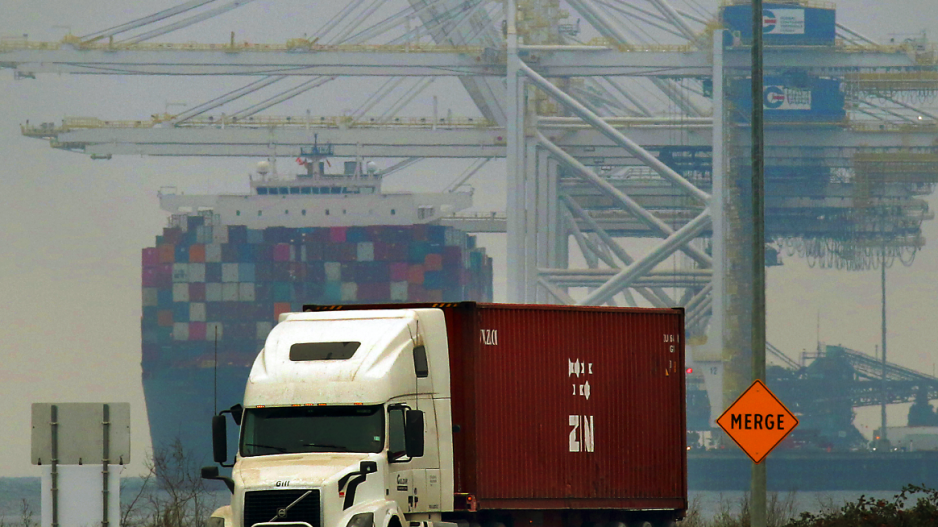A group of drayage truckers at the Port of Vancouver who threatened to take labour action earlier this month have voted in favour of escalating the dispute with the Vancouver Fraser Port Authority (VFPA).
The United Truckers Association, which consists of a number of the port’s owner-operator drayage truckers largely from the local South Asian community, said it has voted and produced a 639-0 result “in support of a shutdown at the Port of Vancouver.”
However, the group also said it has decided to delay any job action until after July for “potential negotiations” with the port.
“While the overwhelming will of our members is now evident, we continue to hold out hope to achieve meaningful exchange and resolution together with the Port of Vancouver and the Government of Canada,” said UTA spokesman Gagan Singh in a statement. “The UTA will only move forward with our shutdown in August should the current plan proceed without mitigation.”
The protest is against the port’s Rolling Truck Age Program (RTAP), which requires drivers to retire vehicles that are 12 model years old or older to reduce carbon emissions at the port starting this fall.
The UTA, which says it represents 800-1,000 drayage truckers at the port, had previously said the decision to force drivers to invest in newer trucks places an unfair burden on them to shoulder the costs of emissions regulations. Previously, Singh said drayage trucks’ emissions requirements should be in lockstep with regulations facing other trucks in B.C., and members feel the RTAP specifically targets truckers from the South Asian community.
“The port’s decision flies in the face of current rules and regulations across British Columbia, where the other 98% of commercially-licensed trucks face no equivalent measures,” a UTA statement said.
Singh also called the port hypocritical in enforcing the RTAP while continuing to ship commodities such as coal to other markets – which results in more carbon emissions elsewhere.
The VFPA indicated previously that it does not control what commodities it ships in and out of its facilities, stating the port’s role is only to facilitate Canadian trade as mandated by the federal government. The port, officials added, cannot dictate what regulations are being levied at the provincial level towards other truckers.
Port authority officials also noted that the UTA – which previously called its proposed action a strike – cannot technically strike because its members are owner-operators with individual agreements with the port, not port employees. As such, any job action would be viewed as a withdrawal of service from such agreements, and the port may pursue other options for its drayage trucking needs.
In a late June interview with BIV, Peter Xotta, VFPA's vice-president of operations and supply chain, described the fleet of trucks that service the port today as being “much more professional” than it was 10 years ago.
He said RTAP’s main objective is “to put in place a mechanism whereby there’s a regular and predictable renewal of [trucking] equipment.”
Xotta added that the port authority has had a lot of discussions and input regarding the truck renewal initiative and its most recent implementation plan with the trucking community “but also from communities who have expressed some significant concerns about poor trucks and their conditions and safety and environmental issues.”
The RTAP was originally slated to be launched in February but was delayed until September due to vocal opposition from truckers. The port authority said it has since made modifications to the program – such as lengthening the eligibility period of trucks from within 10 model years to 12 – to make it more feasible for truckers.
The port estimates that more than 80 per cent of its container trucking fleet of 1,800 already complies with the 12-year limit, and another 150 trucks have become compliant since January.
With files from Timothy Renshaw




